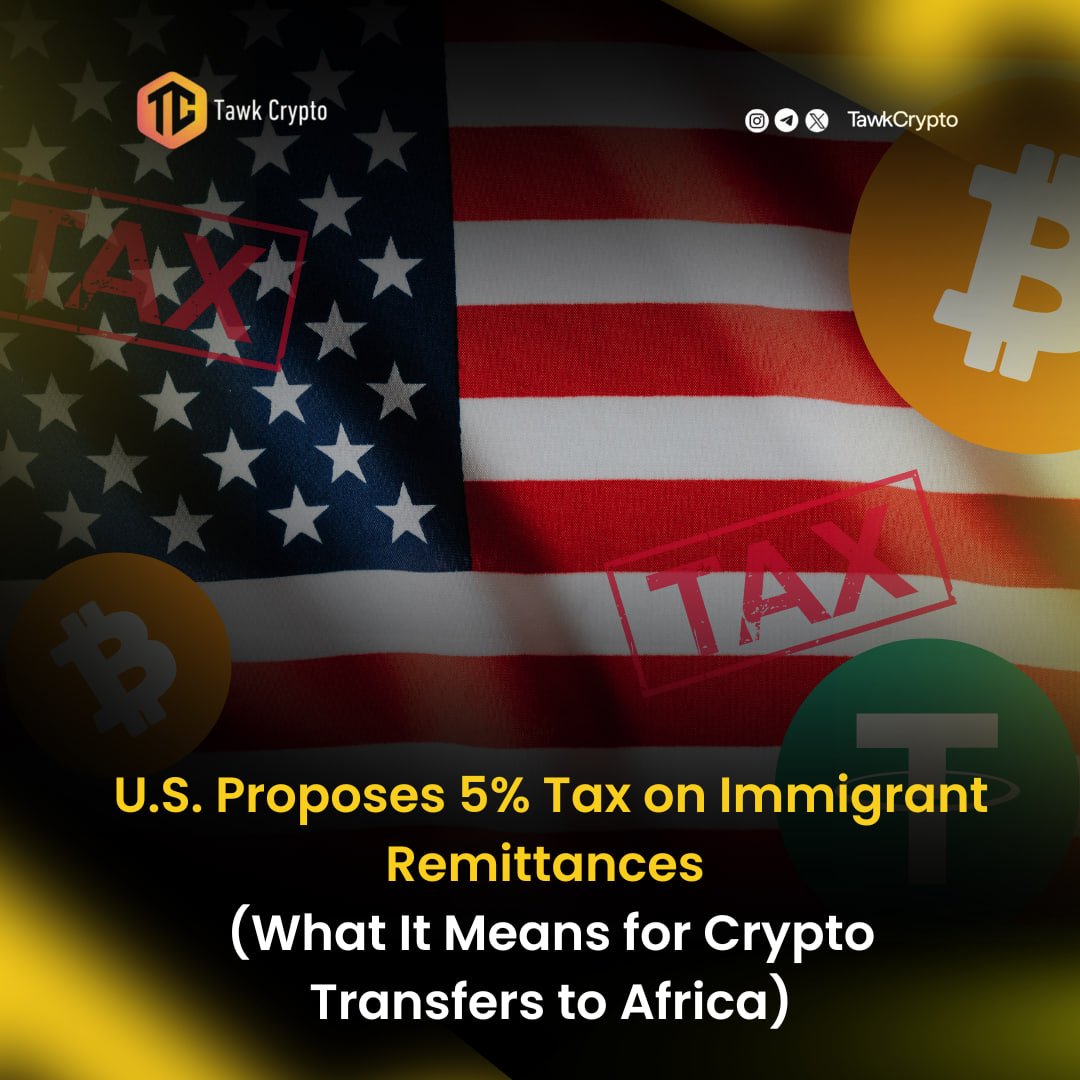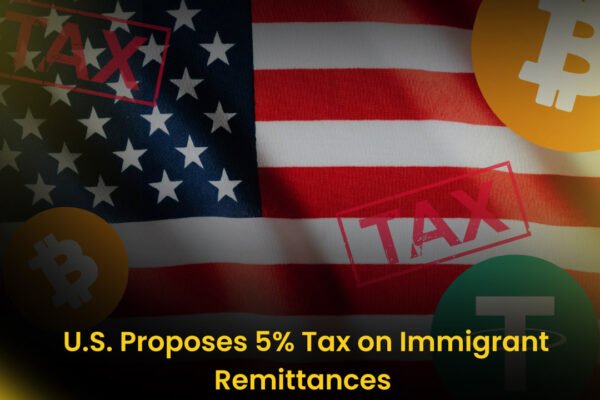

U.S. Proposes 5% Tax on Immigrant Remittances (What It Means for Crypto Transfers to Africa)
A new U.S. bill, controversially dubbed “The One Big Beautiful Bill,” seeks to introduce a 5% tax on remittances sent abroad by non-citizens, including visa holders and green card holders. The proposed policy has sparked alarm across immigrant communities and among policymakers in regions like Africa, South Asia, and Latin America — areas heavily reliant on overseas remittance inflows.
But as traditional remittance rails face new friction, cryptocurrency is emerging as a lifeline, especially across the African continent.
🇺🇸 What the U.S. Remittance Tax Proposal Entails
Introduced by Republican lawmakers, the bill is designed to fund border security and immigration enforcement by levying a 5% tax on remittance transactions made by non-U.S. citizens. This includes workers on H-1B, L-1, and other legal visa programs.
According to The Times of India, Indian immigrants in the U.S. remitted $32 billion in FY 2023–24. A 5% fee would equate to an additional $1.6 billion burden. Similar impacts are expected for immigrant communities from Nigeria, Mexico, and the Philippines.
Critics argue that the tax is regressive, disproportionately affecting low-income immigrant workers and the families who rely on their financial support back home.
Africa’s Dependence on U.S. Remittances
Remittances from the U.S. form a critical financial lifeline for many African households:
- Nigeria received $4.22 billion through official channels between Jan, Oct 2024, with total inflows estimated at $20–$25 billion annually, according to CBN Governor Olayemi Cardoso.
- The U.S. accounted for 38% of Sub-Saharan Africa’s $54 billion remittance inflows in 2023.
- Kenya hit a record $4.94 billion in diaspora remittances in 2024, with 51% originating from the United States, per CBK data.
These funds support basic needs, education, housing, and small business capital. A new tax on transfers could reduce inflows, force senders toward informal channels, or prompt a shift to crypto alternatives.
The Crypto Advantage: Borderless, Low-Cost Transfers
Africa is already leading the world in crypto adoption for remittances, and the proposed tax might accelerate this trend.
Platforms like Pesabase, Yellow Card, and Fonbnk are enabling low-fee, near-instant crypto remittances via stablecoins and blockchain infrastructure. Countries like South Sudan, where fiat access is limited and traditional fees are high (up to 7.9%, according to the World Bank), are turning to crypto rails for efficient money movement.
Additionally:
- P2P crypto trading is surging in Nigeria, Ghana, and Kenya.
- Crypto helps users hedge against inflation and currency volatility.
- Mobile wallets and stablecoins offer a more accessible and inclusive remittance solution for the unbanked.
A Shift Toward Stablecoins for Remittances
Stablecoins are at the heart of this transformation. According to BitKE:
- 43% of crypto transactions in Sub-Saharan Africa are now stablecoin-based.
- Nigeria leads in stablecoin remittance usage, driven by inflation and Naira depreciation.
- In Kenya, an IMF-backed survey revealed that half of private firms use stablecoins like USDT to pay foreign suppliers amid dollar shortages.
- Ethiopia saw 180% YoY growth in small stablecoin transfers, as its local currency depreciated sharply.
Stablecoins like USDC, cUSD, and USDT provide a reliable and censorship-resistant alternative to fiat-based remittance corridors.
Analysis: Crypto as a Financial Necessity, Not Just an Investment
The U.S. remittance tax proposal underscores the vulnerabilities of traditional financial systems, where policies can abruptly disrupt the flow of capital to vulnerable populations.
In contrast, crypto offers a decentralized, permissionless system:
- No intermediaries or state-imposed fees
- 24/7 access and faster settlement
- Programmable money for seamless compliance and automation
For African families and global immigrant communities, crypto is evolving from an investment asset to an essential financial tool.
What’s Next?
If passed, the U.S. remittance tax may unintentionally drive adoption of crypto-based remittance systems , not just in Africa, but globally. While regulators seek to control capital outflows, crypto entrepreneurs are building unstoppable alternatives.
As the financial world becomes more polarized, with traditional systems adding friction and crypto eliminating it , Africa is at the center of a remittance revolution.
For millions, the future of cross-border payments may already be here , and it’s on-chain.







